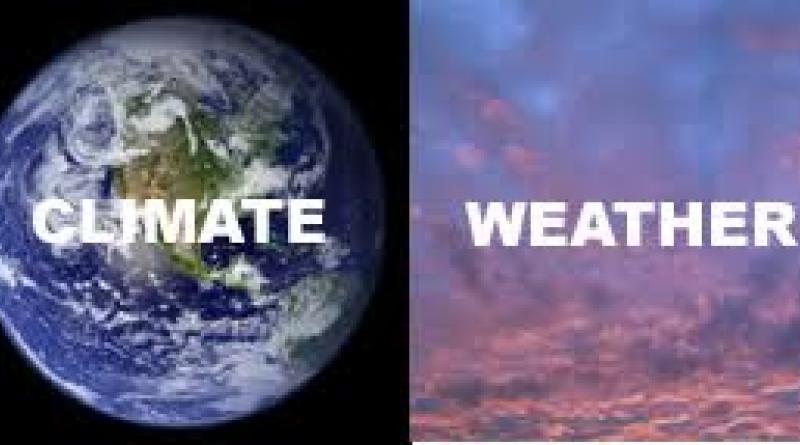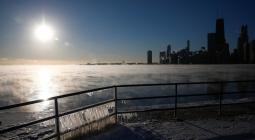Η διαφορά μεταξύ Καιρού και Κλίματος.

The Difference Between Weather and Climate
Let’s get one thing straight: Weather is not climate.
Look, I get it. It’s easy to conflate the two. After all, climate is the average of all the weather recorded over a period of time. But it’s incredibly dangerous when we mix the two up when it comes to climate change. Intense cold and snow in the winter, like what the Midwest is experiencing right now, does not disprove the fact that our planet is warming, yet political leaders prey on that fuzzy distinction to lie about the science. Case in point:
Climate change is real. The vast majority of scientists agree that our planet is warming as carbon dioxide accumulates in our atmosphere at an alarming rate. A warmer climate will lead to longer and more intense heat waves, devastating droughts, more frequent flooding rains, rising sea levels, and a bevy of other ripple effects. Climate change does not mean that winter weather will cease. The world didn’t stop warming because it started snowing in Washington, D.C. A week of bone-chilling cold in the Midwest doesn’t negate the fact that five of the 10 warmest years on record in Minneapolis and four of the 10 warmest years in Chicago have occurred since the beginning of this decade.
The best analogy scientists use to differentiate weather and climate is to compare weather to your mood and climate to your personality. Your mood can change each day, but how people perceive your personality depends on your mood every day over the course of years. You can have some down days and still be considered an upbeat person. It gets really cold and snows in New Orleans every couple of years, but the city’s climate is considered subtropical because it’s usually warm there.
The Upper Midwest and Great Lakes saw some of the coldest air in the entire world this week. However, if you zoom out beyond our backyard, it’s obvious that this cold spell is a small blip in a global sea of abnormal warmth. The above image shows an analysis of temperature anomalies on Thursday, January 31. The world is glowing with warmth. It’s been like that for years now. If you were born in 1977 or later, you have never been alive during a year when the world as a whole averaged below-normal temperatures. This abnormal warmth serves the dual purpose of making cold snaps seem even colder as a warming atmosphere begins to warp our perspective of what constitutes truly cold weather.
Forecasters expect temperatures in the Midwest to undergo a tremendous swing from near-historic lows to dozens of degrees above normal by this weekend. International Falls, Minnesota, will experience a 79-degree-Fahrenheit swing from a minus-49 low on Thursday morning to a 29 high on Sunday afternoon. Over the same period, Chicago will see a temperature swing of almost 70 degrees and Minneapolis will see one of 73 degrees.
We’re not just talking drastic temperature ranges. Highs in the Midwest will be 15 to 20 degrees warmer than normal on Sunday and Monday. But you won’t see the President—or anyone who disputes the science of climate change—tweet out a snarky crack about global warming when the temps rise this weekend, let alone during the summer when the heat index is 100 degrees or hotter for weeks.
When we're comfortable, it easy to forget how much warmer than normal temperatures are. Most of us only sense that something is wrong during extreme events—and, because of how we conflate weather and climate, usually only when those extreme events bring the heat.
Daily weather is a symptom of a changing climate.
A record-setting cold snap in a handful of states won’t do much to alter the world’s temperature profile for 2019. In fact, this winter probably would have been colder if the planet wasn’t warming. Our political leaders can ignore the science on climate change all they want, but lying about it won’t make it go away. And we might only have about a decade left to change course.
31 January 2019
Dennis Mersereau




